Is having a blog on your small business website really worth the investment of time and money?
Or, is it an outdated content marketing strategy that has been replaced by social media and video?
News flash: blogging isn’t dead! While social media and video have their strengths, blogging for small business is still one of the most effective, versatile, and manageable marketing tactics available to you as a tiny team or a solo entrepreneur.
Blogging is your marketing buddy because…
It’s content that lives on your website to generate leads and sales 24×7, 365 days a year.
It’s versatile because you can make it what you want and repurpose the content across multiple platforms and formats.
And, a blog is easily managed since you don’t have to hire out help—but you could if you wanted to since you don’t have to directly produce the content.
Those are just a few highlights of what makes blogging for small businesses so awesome as a marketing tactic.
If you’re contemplating whether a blog on your website is the way for you to market and grow your business in 2024, then read on!
Wondering about business blogging? Here's why it's a must-have for lead generation and business growth in 2024. Click To Tweet1) Blogging Attracts New Prospects by Meeting Them Where They Do Online Searches
You may be thinking that AI tools and social media have eliminated online searches by those researching prior to making a purchase decision.
The truth is that people still use search engines to discover information and businesses that can help them.

A survey of 8,153 U.S. consumers in March 2023 discovered that:
- 56% consider search results (on Google and other search engines) when making purchase decisions;
- 63% use search engine results to learn about products they haven’t purchased before;
- 50% trust search engine results when making a purchase decision; and,
- 31.5% start with Google when shopping online as opposed to 2% for social media.
What about B2B buyers? It is believed that almost all B2B buyers use a search engine during the research phase.
And, a CMO Council report found that:
- 87% of B2B buyers say online content has a major or moderate impact on vendor selection, and
- 28% share valued content with more than 100 colleagues.
The research confirms that searches are still a big part of making purchase decisions. Thus, that’s why you’d want your website to appear at the top of search engines. And, that’s where blogging comes into play.

Consistent, high-quality SEO blogging will boost your ranking so that you can take advantage of your audience’s buying habits to capture some search traffic. This is especially true if paid ads aren’t an option since blogging can attract new prospects to your website and business.
Each blog post is a chance for new prospects to:
- discover your business
- begin the buying journey
- sign up for a free offer so you can follow up by email
If you’re not where your prospects are researching for a purchase, you’ll miss out. So, don’t overlook blogging for small business as a lead generation strategy!
2) The Best SEO Strategy to Outrank the Competition is a High-Quality, Updated Blog
If you want to “do SEO” and rank higher in search rankings, then a blog is the right tactic for the job.
Unless you’re running PPC ads, a blog is what helps your site get to page one of search engines organically. In fact, blogging is a form of content marketing that is synonymous with search engine optimization (SEO).
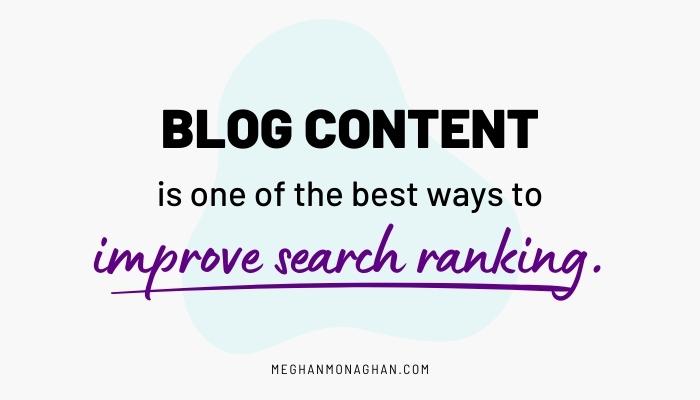
Each well-crafted blog post serves as another indexed page on your website to attract more traffic from search engines. And, blog posts are more likely to rank higher than other pages on your website since they:
1) focus on keyword terms
2) get more backlinks
3) generate more traffic.
Thus, blogging increases your visibility in search engine results pages (SERPs), which translates to more new potential customers finding your website.
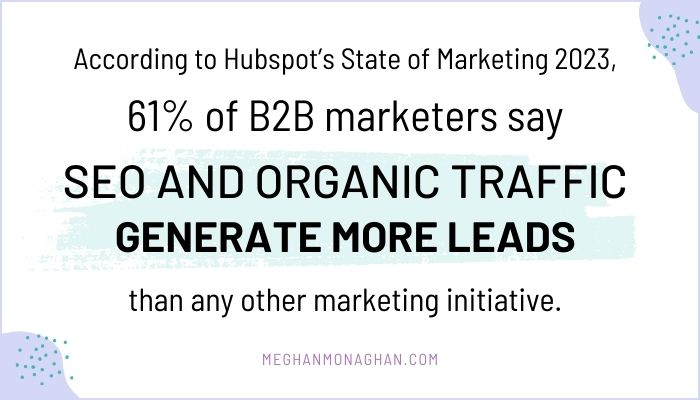
Strategically planned blog content shows off your Experience, Expertise, Authoritativeness, and Trustworthiness. This is referred to as E-E-A-T, which are elements that Google looks for to assess your site.
Google also uses a “Helpful Content” system meant to:
- promote people-first content
- demote content written for search engines and
- assess websites based on the quality and usefulness of their content.
Both E-E-A-T and Helpful Content are important beyond impacting your search ranking. They are good guidelines for creating content that appeals to humans!
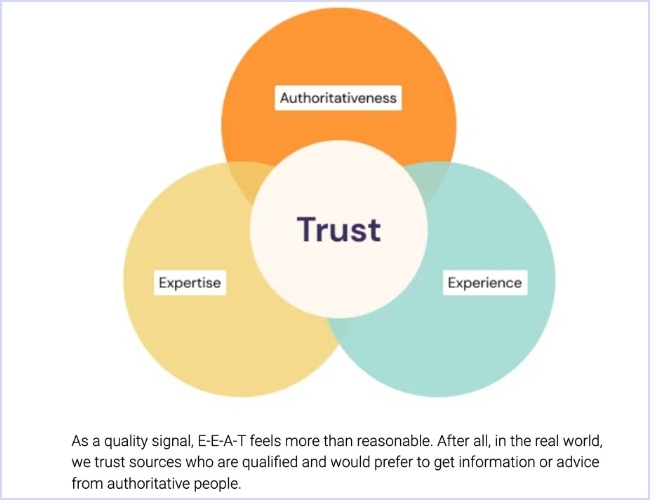
High-quality blog content gives you more opportunities to do better with both Google and your target audience versus having no blog on your site. Plus, a blog targets specific keyword phrases, which gives you more chances at ranking.
Speaking of keywords, when chosen strategically, these important words help your blog to attract more “qualified” website visitors. By pinpointing phrases that focus on search intent that’s more commercial or transactional, you’ll attract warmer, more targeted leads.
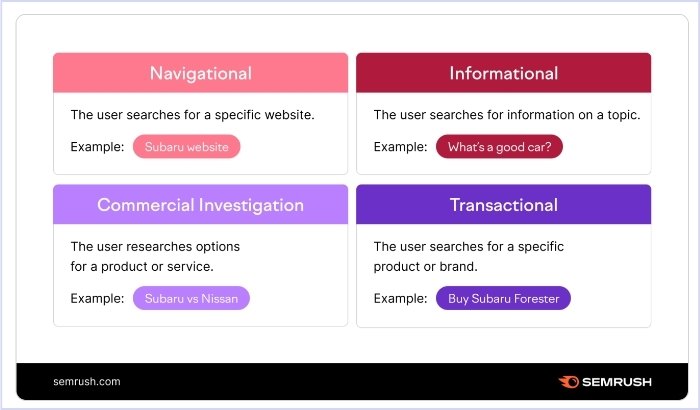
3) Blogging Supports the Buyer’s Journey to Convert Leads Into Customers
Getting leads to convert into customers is not getting any easier in 2024!
But what’s awesome about a blog is that you can create content to support the buyer’s journey.
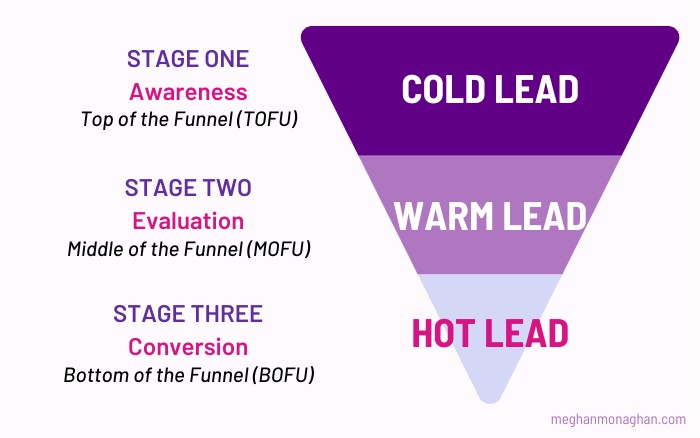
Once you comprehend the various phases and challenges that customers face before making a purchase, you can create blog content for each stage in their journey. The goal is to take a person from being a lead to becoming a customer.
After the content is created, then those blog posts live on your site. You can use links to help website visitors navigate from one post to the next.
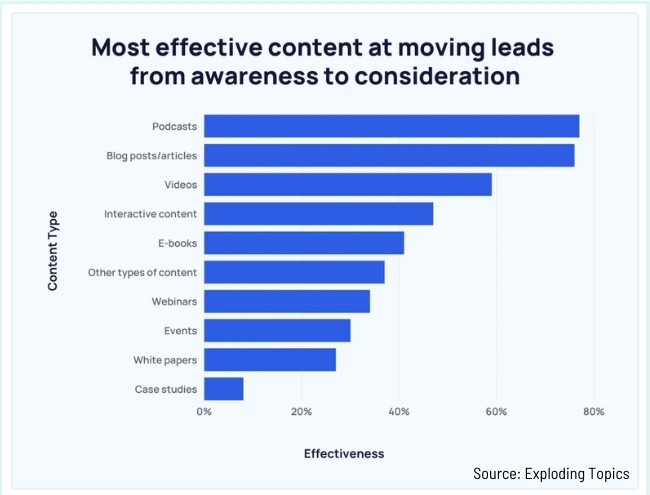
And, guess what? You can reuse that blog content to create follow-up emails to guide a subscriber through the buying journey.
Furthermore, you can use those blog posts as links within email campaigns that serve as a reference or deeper dive of certain topics. And, the posts can be turned into videos or webinars.
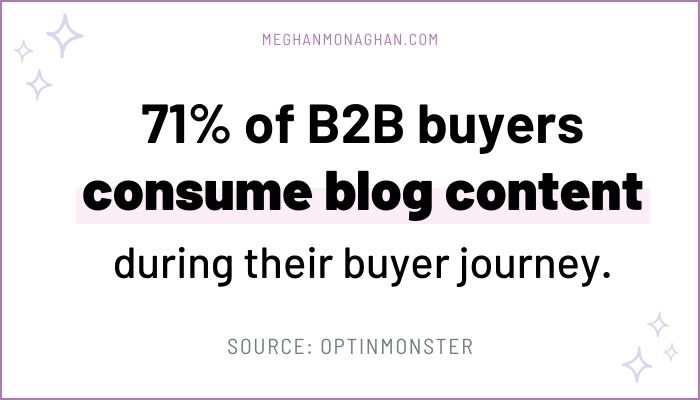
Don’t underestimate the power of following up! Whether you take your prospective customers on a journey via blog posts, emails, videos, or sales calls, follow up is key!
That’s because there are a lot of touch points required before a person decides to buy. In fact, according to Brevet:
- An average of 7 people are involved in most buying decisions in a firm with 100-500 employees.
- Email is almost 40 times better at acquiring new customers than Facebook and X.
And, you are more likely to have a 14.6% close rate with your content compared to a 1.7% close rate through outbound leads generated from advertising and direct mail.
So, when you think about a blog, consider how it supports your business in numerous ways, including as a guide for your prospects.
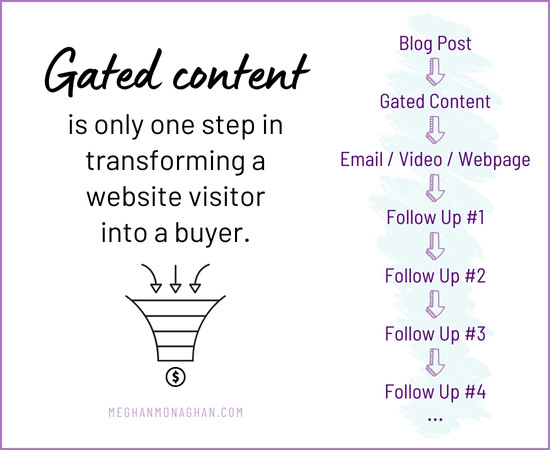
4) Blog Content Outlives and Outperforms Ephemeral Social Media Content for True Staying Power
When it comes to content marketing, the race is not always for the swift. Sometimes, it’s about who can go the distance. This is where blog content shines over social media posts.
Blogs offer undeniable staying power that most social media posts lack. Sure, social posts may generate immediate buzz, but they will quickly get buried under fresh updates and newer conversations within hours if not minutes.
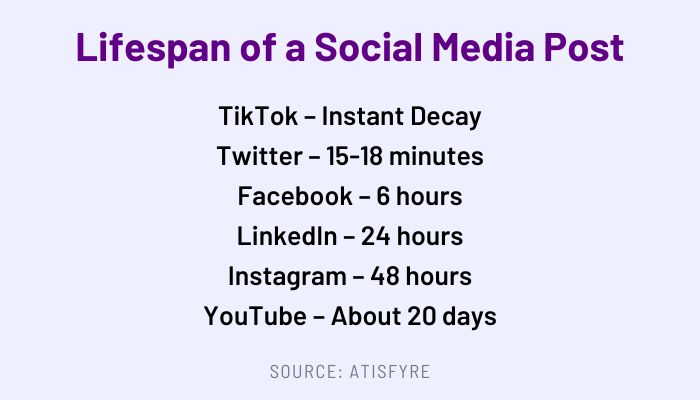
A blog post, however, continues to pull in web traffic on a consistent basis as long as its subject remains relevant—which could be years.
Although it takes time to write a comprehensive article compared to a social post, a blog yields dividends far longer than social media content. As time passes, blog content—which is a part of SEO—improves website traffic.
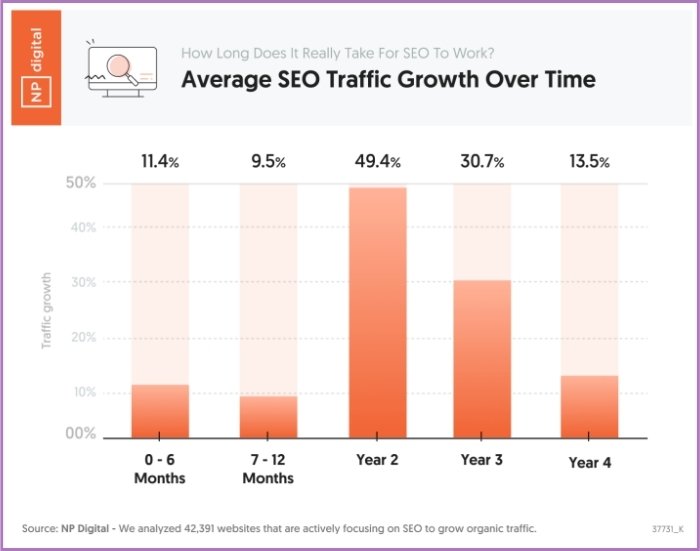
Social media platforms do give you the opportunity to wedge your brand into cultural conversations and express your personality. However, only a fraction of your social media followers see your short-lived posts.
Plus, once a social post launches, its value diminishes quickly. Your posts get lost in the competitive algorithm. As time passes, so does the chance of getting seen.
On the other hand, blog content on your website is like having money in a retirement account that compounds value over time. As high-quality posts age, they often improve, performing better in search and attracting more website traffic.
This is exemplified by my own blog in which older content continues to rake in the views, outperforming newer content.
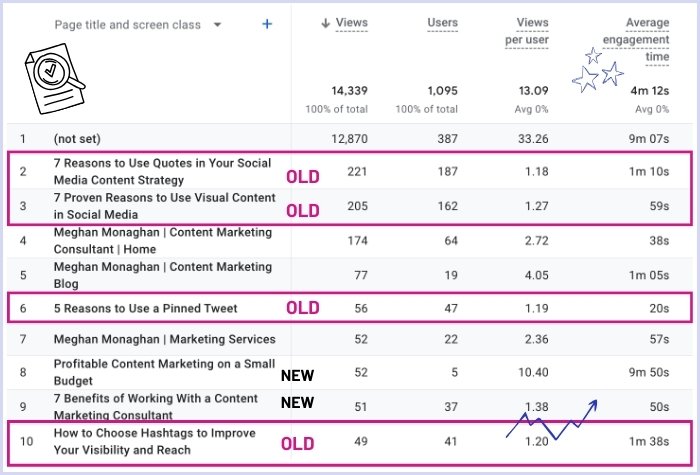
Blogging for small business is a better long-term investment since the lifespan of a blog post significantly outlasts that of a social media post.
5) You Can Achieve Multi Channel Marketing Thanks to a Blog
Many small business owners believe that once a blog post is published, it’s done its job. But, this isn’t the case.
With content repurposing, you can squeeze more value out of your existing blogs by transforming them into different formats and sharing them across multiple channels.
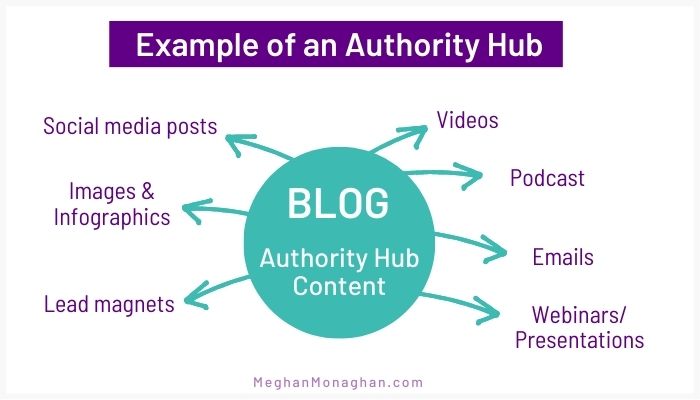
This approach not only maximizes your efforts but also extends the reach of your brand message to various audiences who consume content differently.
This is an effective method for small businesses that have little to no marketing team since you’re not starting from scratch with each piece of content. And, that also makes it great for content marketing on a budget.
High-quality blog posts are amazing assets! You can turn posts into:
- video scripts
- podcasts
- LinkedIn articles
- Medium articles
- webinars
- emails
- social media posts
- Quora answers
- and more!
This means you can extend your content’s reach to many platforms to achieve multichannel marketing.
Multichannel marketing is the use of multiple channels—such as email, social media, video, and print—to spread marketing messages across different touchpoints for a more comprehensive customer campaign.
Here’s an example. Check out how Anthony Tran from AccessWP re-purposed one of the posts I wrote into a podcast topic on Nick Loper’s Side Hustle Nation. Brilliant!
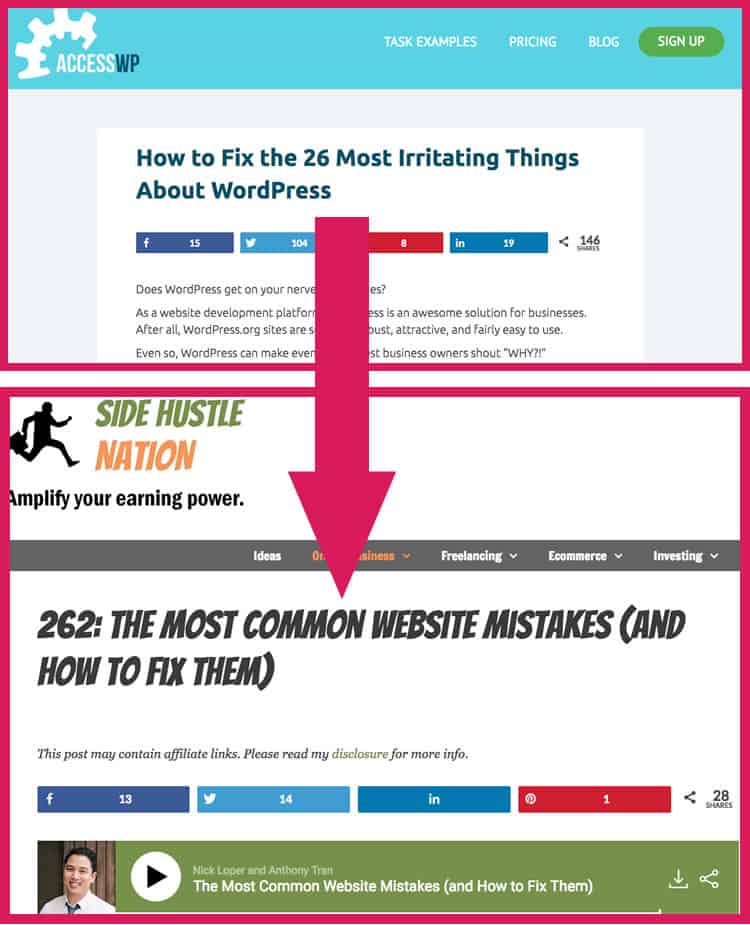
If you’re trying to grow your small business in 2024, multichannel marketing can really help. By reusing your blog content, you’ll reach more people without too much extra overhead. Also, you’ll be more competitive since your marketing messages will get greater reach.
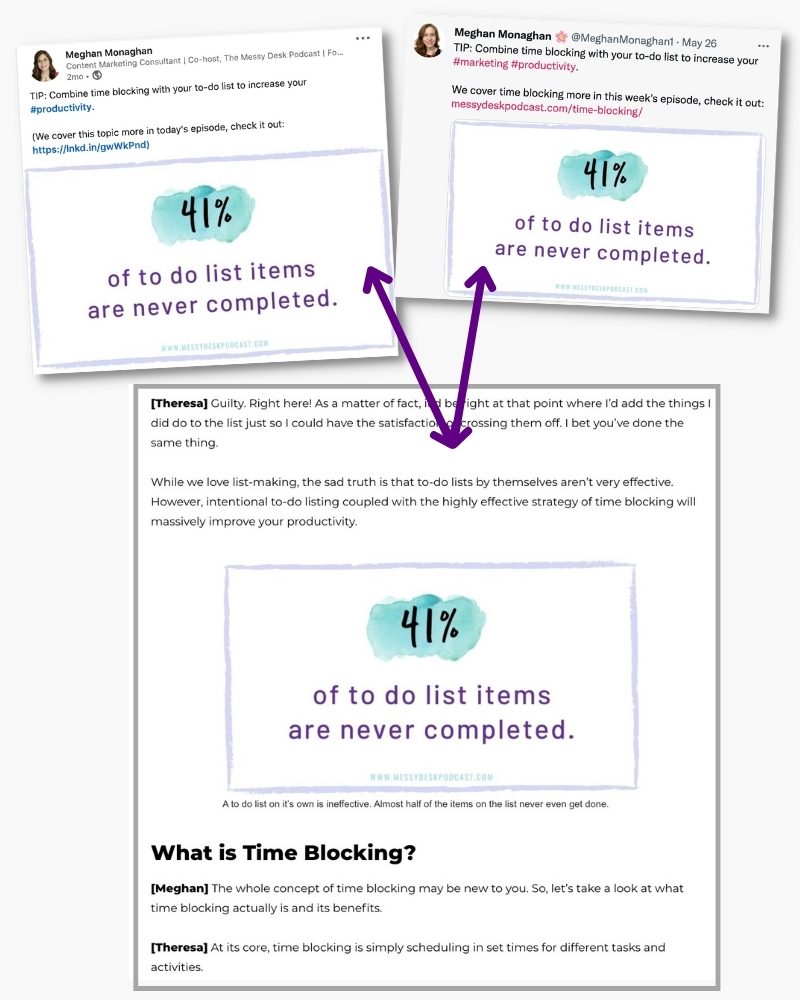
6) If You Don’t Have the Budget for Advertising, Blogging is a Cost Effective Alternative
Another reason to consider blogging in 2024 is that it works to generate leads if you don’t have the budget for running ads.
These are two very different tactics, so they don’t perform in the same way.
Pay per click (PPC) ad campaigns provide faster results since you can reach a targeted audience quickly. Plus, it’s easier to track the return on investment (ROI) with ads. You know what money you spent and how much came in.
With blogging, the results are much slower and cumulative. And, tracking ROI is more complex. Nevertheless, the results are excellent.
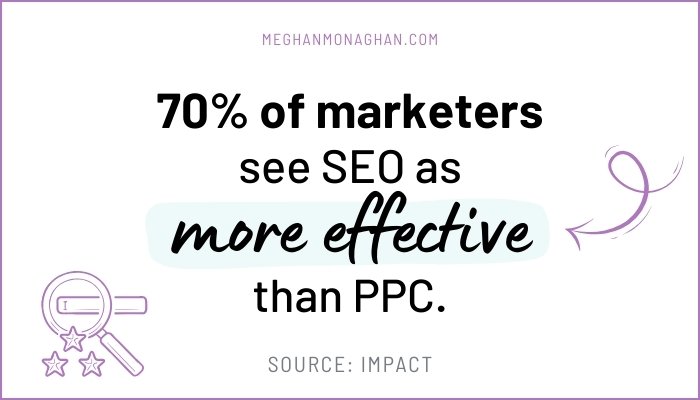
But, how well does blogging perform in terms of lead generation?
Databox Benchmark data for 2023 showed that 72.5% of respondents feel that blogging has become MORE EFFECTIVE at generating leads. YIPPEE!
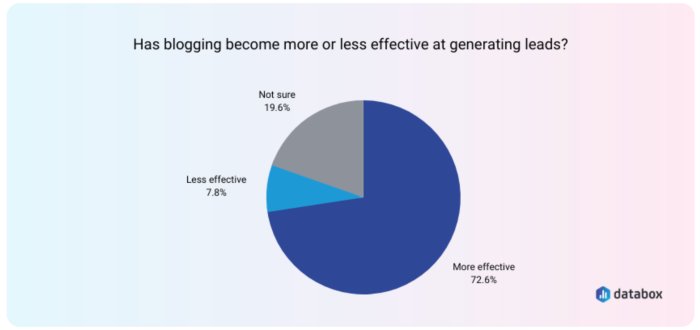
Furthermore, research showed that content marketing is the PRIMARY CHANNEL for lead generation.
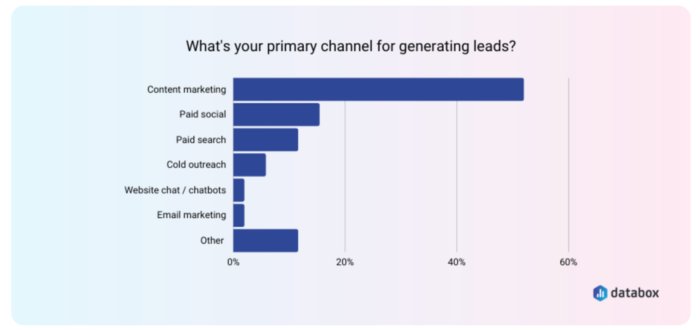
What’s more is that leads from SEO (aka blogging/content marketing) stood out as the “top source of high scoring leads,” which means that the most valuable leads come through organic search.
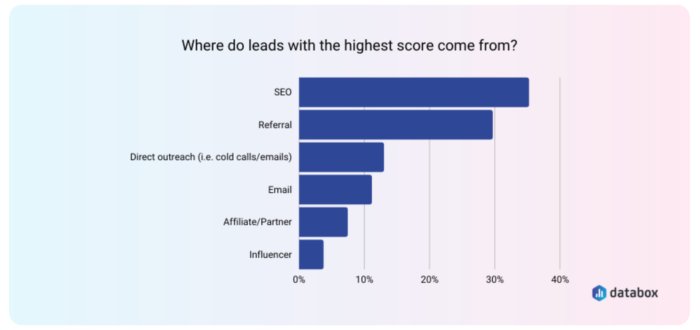 So, blogging is still great for lead generation and attracting the highest quality leads. (Two reasons why content marketing is important for B2Bs!)
So, blogging is still great for lead generation and attracting the highest quality leads. (Two reasons why content marketing is important for B2Bs!)
Although PPC can be effective, you need a budget upfront for running the ads and for hiring an ads specialist if you’re not experienced.
In 2023, the average cost per lead in Google Ads was $53.52 depending on the industry. By comparison, Facebook advertising on average is $0 – $5 per download, although how much you pay depends on quite a few variables.
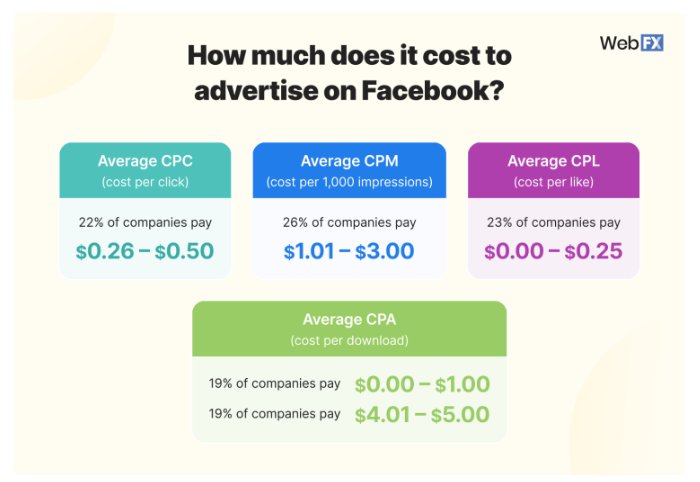
Of course, once you stop ads, the flow of leads stops, too, which is not the case with blogging.
It really comes down to your goals, budget, and timeline. But one thing is for sure: blogging attracts high quality leads.
7) A Blog Offers Multiple Ways to Capture Leads
Let’s face it: people today have less patience and are often consuming content on the go. And, having a blog makes capturing a lead much easier, which is probably why businesses rank blogging so high for lead generation.
We know that video is super popular. And, people love social media. But when a person is browsing through social platforms or watching a YouTube video, they don’t necessarily have an immediate or one-click way to give you their contact info before they are off doing the next thing.
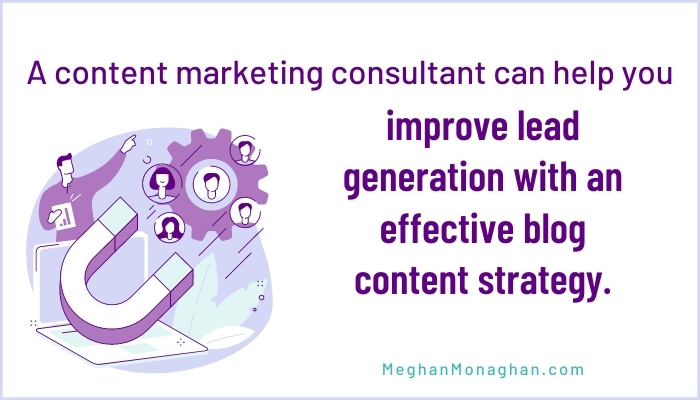
With a blog, however, you have multiple ways to collect personal information before they leave your website. (And this is REALLY IMPORTANT since over 80% of website visitors never return to your site once they’re gone.)
So, having an easy way to capture more leads is a very good reason to consider blogging in 2024. More leads from your website means more chances to follow up and reconnect with those folks who clicked on a blog post.
Let’s talk about three examples of how you can capture a lead via your site.
1) Exit Pop-ups
I know, I know…you hate those dreaded pop-ups that appear when you’re trying to leave a website. The thing is, they do encourage people to give you their email address before they’re gone forever!
There are reasons against pop-ups since they aren’t the best user experience and can disrupt flow. But, if the person is leaving your website anyway, the flow is a moot point. You may as well ask for their email before they skedaddle.
According to Optimonk, email pop ups convert around 5-7%, which is on the low end. However, if the person is leaving your website anyway, again…there’s no harm in asking if they want a free offer or to sign up for a newsletter.
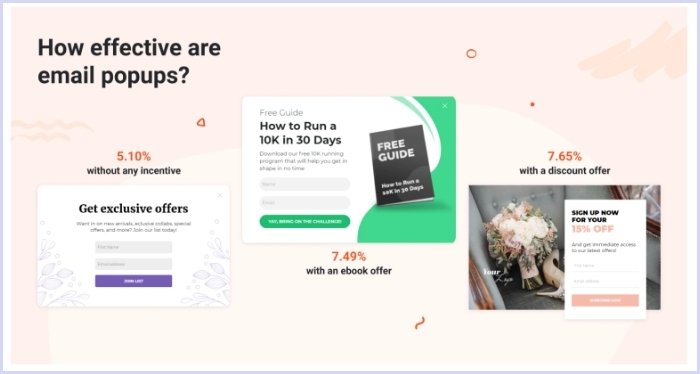
There’s way more that I could cover, but pop-ups have a place in your website and lead generation strategy. You can get fancy and strategic with pop-ups to increase their conversion rate, such as displaying custom free offers based on blog post topics to help segment your audience.
But, the point here is that you have a way to capture leads much easier than with social media and videos.
2) Web Push Notifications
You are probably no stranger to web push notifications. These are another type of pop-up that typically appears at the top of a web page where you are asked if you want to “allow” or “block” notifications.
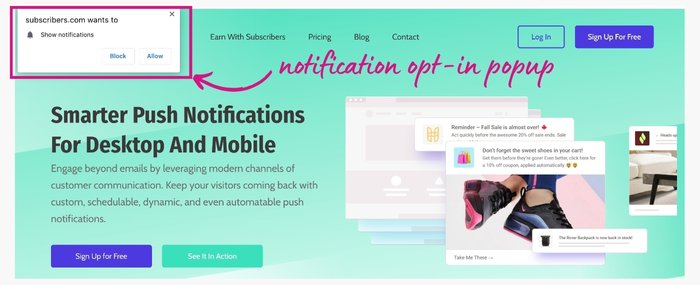
Although, in my opinion, these notifications typically appear way too soon in the user experience, they do offer an alternative to email follow ups.
Website visitors can opt in for web push notifications, which are delivered directly to their screens (desktop or mobile) rather than via an email to their inbox. No name or email required. And, they don’t need to be on your website to see the notifications.
One major advantage is that you’re getting back in touch with your potential customer outside of email, so the delivery rate is likely more reliable and higher than with email marketing. And, obviously this is far more reliable than social media for getting marketing messages to your audience.
There are all types of options with push notifications! You can:
- make announcements
- offer discounts or coupons
- re-engage customers
- recover lost sales from abandoned carts
Those are just a few examples.
3) Website Visitor Identification
The last example of how a blog is preferable to other content marketing formats for lead generation is that you can use a tool to identify website visitors. That’s right…you can get the email of website visitors to run follow up campaigns.
Here’s a personal example. I visited a cosmetics company’s website for the first time and put an item in the cart but didn’t make a purchase. Though I didn’t provide an email address, the company used a magical app that identified me. They followed up with an email campaign that started with a cart abandonment email and ended with a coupon (to try to get me to finish my purchase).

As a business owner, I love the idea of being able to capture the attention of a potential lead. As a consumer, I don’t love that I’ve been contacted without my permission, yet I do love a reminder and a good deal!
I think that this is a win for ecommerce, although there are many strategic ways to incorporate this into your marketing.
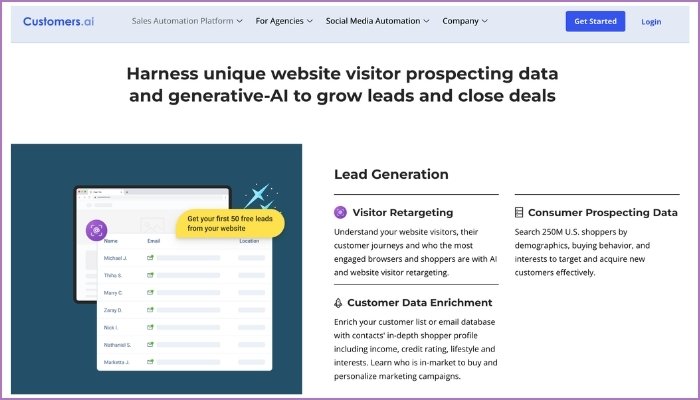
In general, these three lead generation tactics work because you’ve got a blog on your website where you choose the right post topics to attract qualified, more targeted visitors. And that means better lead generation.
Blogging for Small Business is the Best Way to Highlight Authority and Generate Leads in One Place Online
Blogging offers many benefits, but I think lead generation is at the top of the list.
When it comes down to it, all of the reasons for a small business to blog have to do with lead generation and sales, at least in this article. But, I’d like to add one more reason: blogging is one of the best ways to communicate your expertise, experience, and authority in your industry.
Your website is your slice of real estate online. When people come to your online “house,” it’s your time to show them around, make them feel like a wanted guest, and start building a relationship to encourage trust and likeability of your brand.
This is why I consider your website to be THE Authority Hub where all of your most important Authority Content resides. Visitors can spend hours consuming your content to get to know your business.
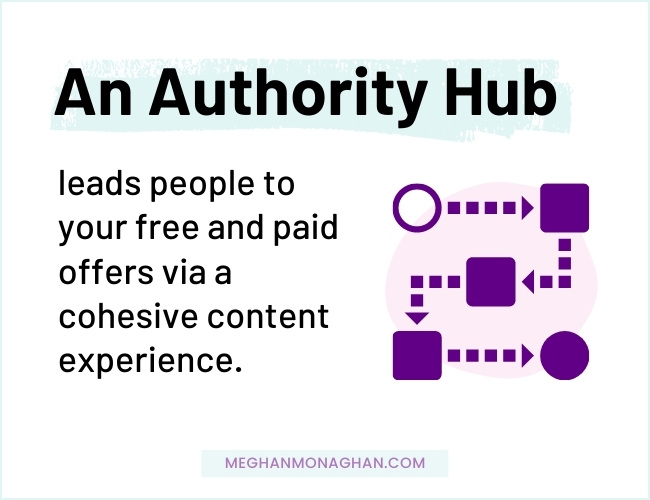
And, a blog is a critical piece in the perception of whether your business is legitimate, current, trustworthy, and capable. Including your video and audio content in your blog only reinforces the good vibes! One location to store them all to make it easy for your target audience to engage with you and your content.
Hopefully, this article has given you some insight into business blogging and why it’s still relevant in 2024. Yes, it’s an old tactic. But, it still has a lot to offer, which is why B2B companies continue to blog. Content marketing for small businesses remains an effective, profitable strategy to compete in your industry.
Remember, if you need help with your business blog and strategy, I’m here for you!
How do you feel about blogging for your business? Please share your thoughts below.
And, be sure to check out my article on how to get better results from your business blog, which includes current feedback from real-life bloggers.
UPDATED DECEMBER 6, 2023 | PUBLISHED MARCH 15, 2018

It's so funny, your stats state X% use and trust search results…. and reminds me of the saying, if it's on the internet it must be true. While I 100% agree with you that SEO is not dead, blogging is relevant, I think people are just freaken lazy, use AI and believe anything they read on the internet. People, it's on the internet but are you researching your research? Just a thought/note, wanted to add to that point.
Back to the SEO won't be dead, because of the above… and people will believe what they read… so why not you, you know? Also to your point… EEAT, Google can't give you street cred if you have jack on your site, which reminds me, guess I need to get back on mine! lol Grrr And how can they (the customer) get to know, like and trust you when they can't meet your IRL… by seeing what you say/write, etc.
Blogs are great for so many other things, they give you content to share on social media, that isn't someone else's content and drives back to your website… and helps provide content for your email marketing.
All great stuff Meghan, as usual, as expected, thank you for that reminder/nudge… all right already, push me off the cliff! lol
As always, I appreciate your wise input Kristen! Good points. The EEAT/Helpful Content stuff is a big deal since those two things matter to SEO, but they also are the things that are important to your target audience. Like you said: you’ve got to give Google more than just a four page website if you want to rank on page one. And, I’ll piggyback on that with: you’ve got to give your audience something too (if your website is how you generate business). I’d love to see you go back to blogging since I love your posts and miss them! Thank you for commenting. 🙂
Hey Meghan,
I couldn’t agree more! Being someone who has been blogging for about 10 years now, I’ve tasted so many benefits.
The part I love about blogging is the cost effective factor. You are so right, people just ignore paid ads – I ignore them all the time – I prefer organic.
And yes, think about all the ad blockers around! It is just waste of money.
Thanks for bringing this up!
Cheers,
Aniket.
Hello Aniket! Thank you for weighing in on the benefits of blogging for small business. Congratulations on blogging for ten years – that’s a big accomplishment! I appreciate you taking the time to leave a comment. 🙂
Another great article Meghan. It’s tough to take that first step in writing your first article, but once you get going, anyone can do it and reap these benefits.
Thank you, Bob! Half the battle is getting started, right? 😉 I love that blogging is available to nearly everyone. It’s one of those things that I consider a “must” when it comes to running a successful online business. I really appreciate you taking the time to comment. 🙂
Wowsers Meghan.. this blog had SOOOO much info… all super helpful and beneficial. We all want to show up in search so we can be found by our customers.
Over 4k words…this was a beast of a post, LOL! You’re a pro at search engine optimization, so you already know the massive value blogging brings to your business. I love the other benefits of blogging too. Thanks for stopping by!